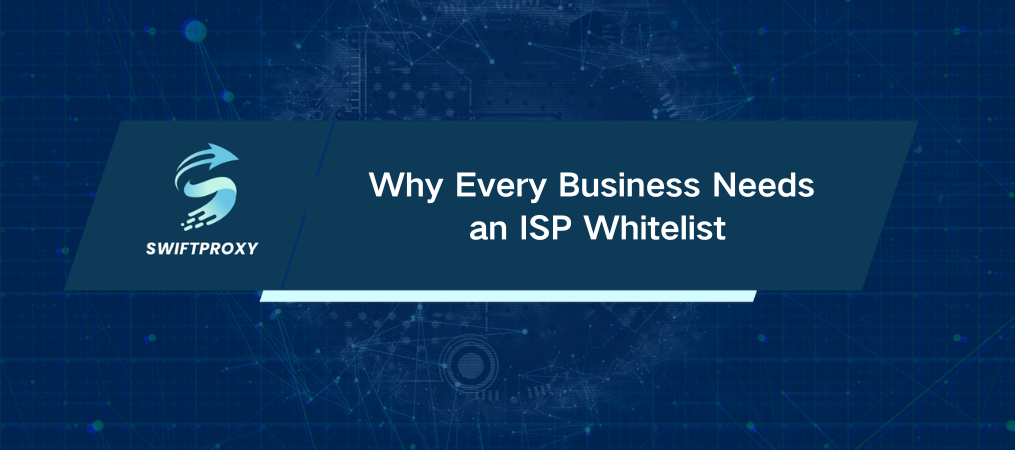Why Every Business Needs an ISP Whitelist

"Cybercrime is predicted to cost the world $10.5 trillion annually by 2025." That's not just a staggering figure—it's a wake-up call. Every click, every download, and every connection we make online is a potential vulnerability. But here's the good news: there are ways to take control and shield your network from threats. One of the most effective tools? The ISP whitelist.
Let's break down what it is, why it matters, and how it can transform your approach to internet security.
What is an ISP Whitelist?
Think of an ISP whitelist as the ultimate VIP list for your network. It's a security measure that only allows access to pre-approved IP addresses or domains, keeping everything else locked out. By creating this "whitelist," you ensure that only trusted parties can interact with your resources, drastically reducing the chance of unauthorized access.
But why does this matter? Let's dive into the specific benefits.
1. Shut the Door on Hackers
Hackers don't knock—they break in. They use tools like phishing emails, brute force attacks, and malware to steal personal or corporate data. An ISP whitelist adds a powerful layer of defense by letting only trusted IPs or domains connect to your network.
It's like building a moat around your data castle. Unless someone is explicitly on your list, they're not getting in.
2. Stop Viruses at the Door
Viruses thrive on open doors—unsecured networks are their playground. From ransomware to spyware, malware can wreak havoc on your system, often spreading faster than you can react.
With an ISP whitelist, you drastically reduce the risk. By restricting access to verified sources, you cut off the pathways that viruses often exploit.
3. Protect Sensitive Business Information
Every business has data it can't afford to lose. Financial records, product designs, client information—the list goes on. Once leaked, this data can result in massive losses, reputational damage, or even legal consequences.
An ISP whitelist ensures that only authorized employees or trusted third parties can access sensitive files. It's a safeguard that protects your business's most valuable assets.
4. Filter Out Malicious Traffic
The internet is full of junk—spam, malicious bots, and unnecessary traffic that clogs your network and compromises its performance. This isn't just an inconvenience; it's a security risk.
By using an ISP whitelist, you can block out unnecessary or harmful traffic, ensuring your network stays smooth, efficient, and safe.
5. Enhance User Experience
No one enjoys intrusive ads, spammy pop-ups, or suspicious links. These annoyances can disrupt workflows and expose users to phishing attacks or malware.
With an ISP whitelist in place, you create a cleaner, more focused online environment. Only trusted websites and services get through, resulting in a faster, distraction-free user experience.
Why You Should Act Now
Cyber threats are evolving every day. Hackers are getting smarter, and malicious software is becoming more sophisticated. Ignoring security best practices like implementing an ISP whitelist isn't just risky—it's reckless.
But the good news? ISP whitelists are straightforward to set up and maintain. Combined with other tools like firewalls, VPNs, and strong passwords, they form a powerful defense against even the most advanced threats.
Think of an ISP whitelist as your first line of defense. By controlling who can access your network, you're taking a proactive stance in protecting your data, your users, and your peace of mind.
Build a Safer Digital World
Network security isn't just a technical concern—it's a shared responsibility. Whether you're an individual looking to protect personal data or a business safeguarding critical assets, the ISP whitelist is a simple yet effective tool.
Start today. Create your whitelist. Stay informed about potential threats. Together, we can create a safer, more secure internet for everyone.

















































